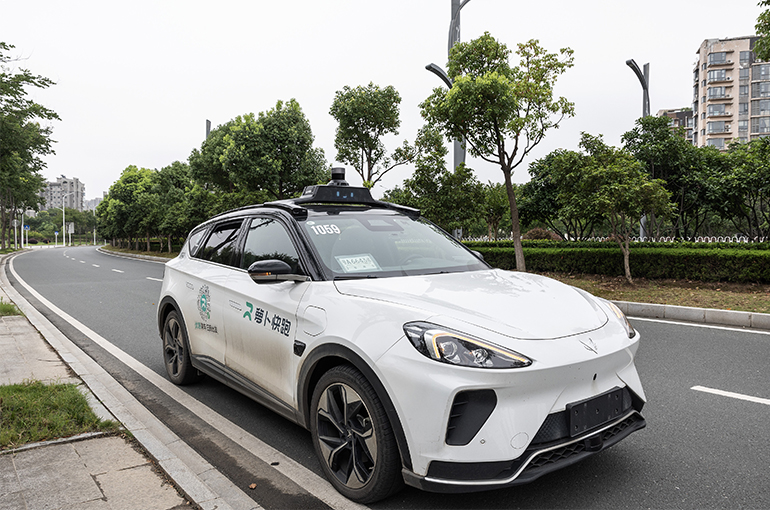 Baidu’s Robotaxi Service Gathers Steam in Wuhan With Low Prices Amid Challenges
Baidu’s Robotaxi Service Gathers Steam in Wuhan With Low Prices Amid Challenges(Yicai) July 11 -- Apollo Go, Baidu’s autonomous ride-hailing services provider, has been making headlines this week with super-cheap rides but also safety issues and complaints from taxi drivers.
Yicai tried out one of Apollo Go’s unmanned taxis in Wuhan on July 9, paying a discounted CNY5.1 (70 US cents) for a 12-kilometer journey, far less than the CNY29 (USD4) charged by a regular taxi. The driving experience was smooth overall, despite three emergency brakes, with an average speed of about 65 kilometers per hour on an expressway.
But the service is not without its issues. Two days ago, Yicai reported that an Apollo Go autonomous taxi had bumped into a jaywalker in Wuhan, the capital of China’s central Hubei province. A Baidu representative said the pedestrian was unharmed.
Taxi drivers in the city have been much affected by the price advantage of unmanned cabs and their 24-hour operation, leading them to call for fair competition and more controls on the areas that robotaxis service. Local citizens complain that they sometimes park illegally, block roads, and move too slowly.
Apollo Go has clocked up more than 100 million kilometers of autonomous driving mileage without major accidents, according to Chen Zhuo, general manager of Baidu’s self-driving business unit, and it has received feedback from almost 1.8 million users after completing over six million trips.
Wuhan is a pioneer in autonomous driving. The city had almost 3,380 kilometers of roads for testing self-driving vehicles as of December, with related service bookings reaching 732,000 last year.
Apollo Go aims to break even in Wuhan by the end of this year and start to make profit next year. A sixth-generation Apollo Go robotaxi costs just CNY200,000 (USD27,500), which is 60 percent less expensive than the previous model, Yicai learned.
Apollo Go operates 400 robotaxis in Wuhan, not the rumored 1,000, according to an official at the local transport bureau. They do not compete directly with traditional taxis at the moment but should be considered more like a new experience, said Pan Helin, a member of a committee under the Ministry of Industry and Information Technology.
Intelligent driving is a long-term trend that people need to adapt to, according to Stephen Dyer, co-leader in China at consulting firm AlixPartners. Taxi drivers face a situation similar to when cars replaced horse-drawn carriages, he said.
Driverless cabs can bring more economic benefits and incremental value, such as the construction of collaborative systems for smart vehicle infrastructure and the increase in output value of the auto industry brought about by in-car entertainment facilities and vehicle intelligence, Pan added.
Robotaxis probably account for about 3 percent of all taxis on the roads, and with more policy support may reach around 22 percent in 2027 and more than half in 2030, according to Yu Mingyuan, a former director of a center linked with the transport ministry.
Editor: Emmi Laine